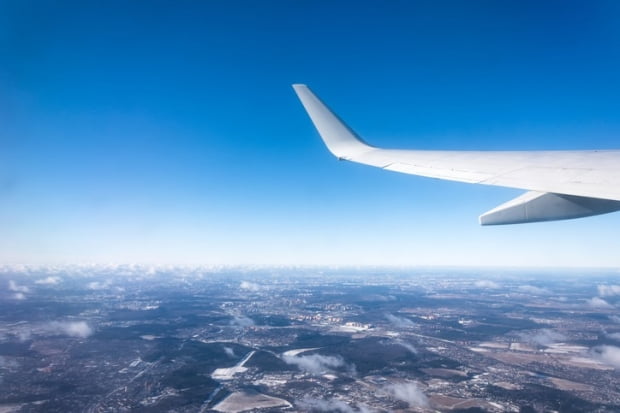
As low-cost airlines (LCCs) increase domestic flights in the aftermath of the novel coronavirus infection (Corona 19), there is concern about bleeding competition. /Photo = Getty Images
Along with the integration of Korean Air and Asiana Airlines, the newly launched integrated low-cost airline (LCC) faced the biggest crisis before its launch. This is because cash in possession was exhausted, with operating losses of over 400 billion won last year in the aftermath of the novel coronavirus infection (Corona 19).
According to the Financial Supervisory Service on the 10th, Jin Air made an operating loss of 184.7 billion won last year. It is the largest deficit since its establishment in 2008. Air Busan also suffered an operating loss of KRW 10.7 billion, the largest since its foundation in 2007. Air Seoul, an unlisted company, is estimated to have incurred an operating loss of about KRW 60 billion. The combined operating losses of the integrated LCC amount to 400 billion won. During the same period, it far exceeded the operating loss of Jeju Air, the largest LCC in Korea (estimated 280 billion won).

Korea Development Bank and Korean Air are advocating that if the three companies are integrated, it is possible to realize a’economy of scale’. Unlike Korean Air and Asiana Airlines, which have been focusing on cargo sales after the Corona 19 crisis, LCC relies on passenger demand, and a large deficit is inevitable every quarter. Domestic flights, which have significantly increased their supply, are not making profits as they are competing with super special tickets for less than 10,000 won.
Air Seoul is facing the crisis of license cancellation. Air Seoul’s capital erosion rate, which has exceeded 50% since 2018, has soared to the 300% level as operating losses increased last year. The airline’s license may be revoked if 50% or more of capital erosion continues for more than two years. Air Seoul, which has become unable to survive on its own, is relying on support from its parent company, Asiana Airlines. At the end of last month, Air Seoul extended the deadline for 30 billion won in loans due from Asiana Airlines by one year.
At the end of last year, Air Busan made a capital increase of 83.5 billion won. However, it is an observation that this fund will also bottom out in April. Jin Air, which secured cash through a paid-in capital increase of 100 billion won last year, is far better off among the integrated LCCs. However, there are concerns that Jin Air may run out of cash after the first half of this year if the current situation continues.
The aviation industry predicts that it will take at least 2 to 3 years for the industry to recover to the situation before Corona 19 even if the vaccine is supplied. An official from the aviation industry predicted, “Unless there is a financial support from the government and the bank, it will be difficult for the integrated LCC to withstand the situation in which international passenger demand shows no signs of recovery.”
Reporter Kang Kyung-min [email protected]
Ⓒ Hankyung.com prohibits unauthorized reproduction and redistribution
